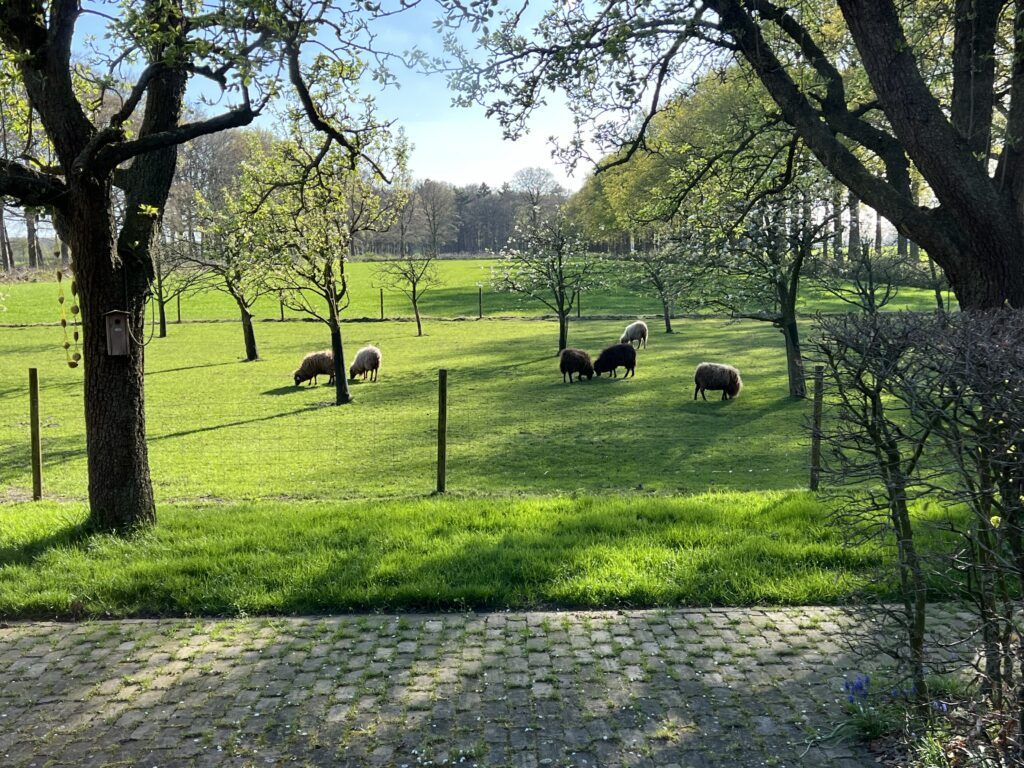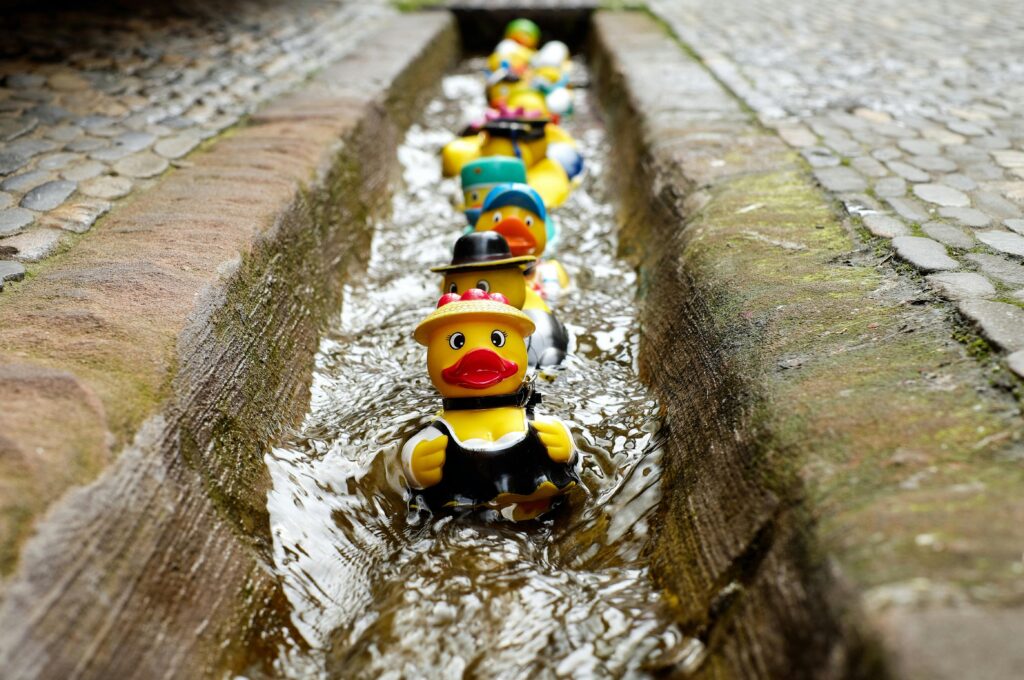Some months ago, I received a questionnaire from the government inquiring about measures to help my sheep deal with the heat during summers. I collected it from my mailbox in heavy rain and wondered whether there wasn’t another important question missing, namely, how I keep my sheep dry during autumn and winter.
With considerably more rain than usual, since October 2023, that has become a real issue as the orchard in which my Ouessant sheep graze, now regularly transforms into a small lake and mud pool.

“Having your sheep on dry land” is a famous Dutch saying which equates to “having one’s ducks in a row” in English. It means broadly speaking that everything is well being taken care of or well organised, and that one does not have to worry about financial affairs and responsibilities.
I couldn’t help but wonder whether metaphorically speaking, this missing question is also increasingly applicable to our personal financial affairs and responsibilities.
This week I read about companies ‘waterig down’ their sustainability goals (Unilever, Shell, etc.) while at the same time Dubai is experiencing record volumes of rainflall innundating the city and its airport, and Chinese cities in coastal areas sinking both from their weight as well as rampant groundwater extraction form undergroup aquifers.

And we don’t need to travel to the other side of the planet as in large parts of the Netherlands, the ground is also subsiding due to human activity. This is primarily caused by lowering the groundwater level to keep our feet dry and building residential areas and roads on soft soils. Additionally, the extraction of gas, oil, and salt plays a significant role.
Increasingly I question whether I have my ducks in a row, even though literally more and more ducks can be found nesting around my house due to the increase in water surface.
According to the scientific journal Nature, the consequences of climate change are projected to cost the global economy trillions of euros annually. This is due in part to extreme weather events, health damage, and decreased agricultural yields.
Evidently, a portion of the increased costs is already considered unavoidable, and if the world continues to warm, the costs could skyrocket even further.
The calculations “clearly show that protecting our climate is much cheaper than neglecting to do so.” The researchers emphasize that they have only discussed economic damage here; loss of life and biodiversity are additional concerns.
The Potsdam Institute for Climate Impact Research estimates that by 2050, the total global damage, under current conditions, will amount to €35.5 trillion annually (19% lower global income compared to a scenario without climate change).
Researchers observe negative impacts in most regions of the world, stemming from both higher temperatures and more intense rainfall and resulting floods. They anticipate that the damage will be most pronounced in Africa and Southern Asia.
Ironically, the countries that have contributed the least to GHG emissions are projected to suffer the hardest economic blows according to the study. Their damages are 60 percent greater than those of wealthy countries, which have emitted significantly more over the years.
Hopefully, you will appreciate why I – as an economist – and we at HeartWork are so passionate about change for a sustainable future. It simply makes good economic sense and paradoxically, based on personal experience, doing more with less enriches my life. And if that is not enough reason, we owe it to all (human) beings, particularly those in the global south who suffer the brunt of our comfortable living.
I feel even more motivated to continue with my plant based diet, while further reducing my water and (hydrocarbon) energy consuption and eliminating waste. Are you also passionate about a sustainable future and what steps are you taking to make positive change?

